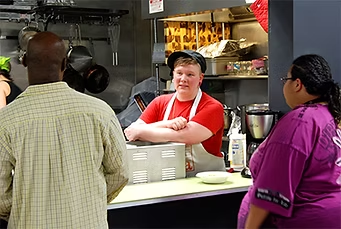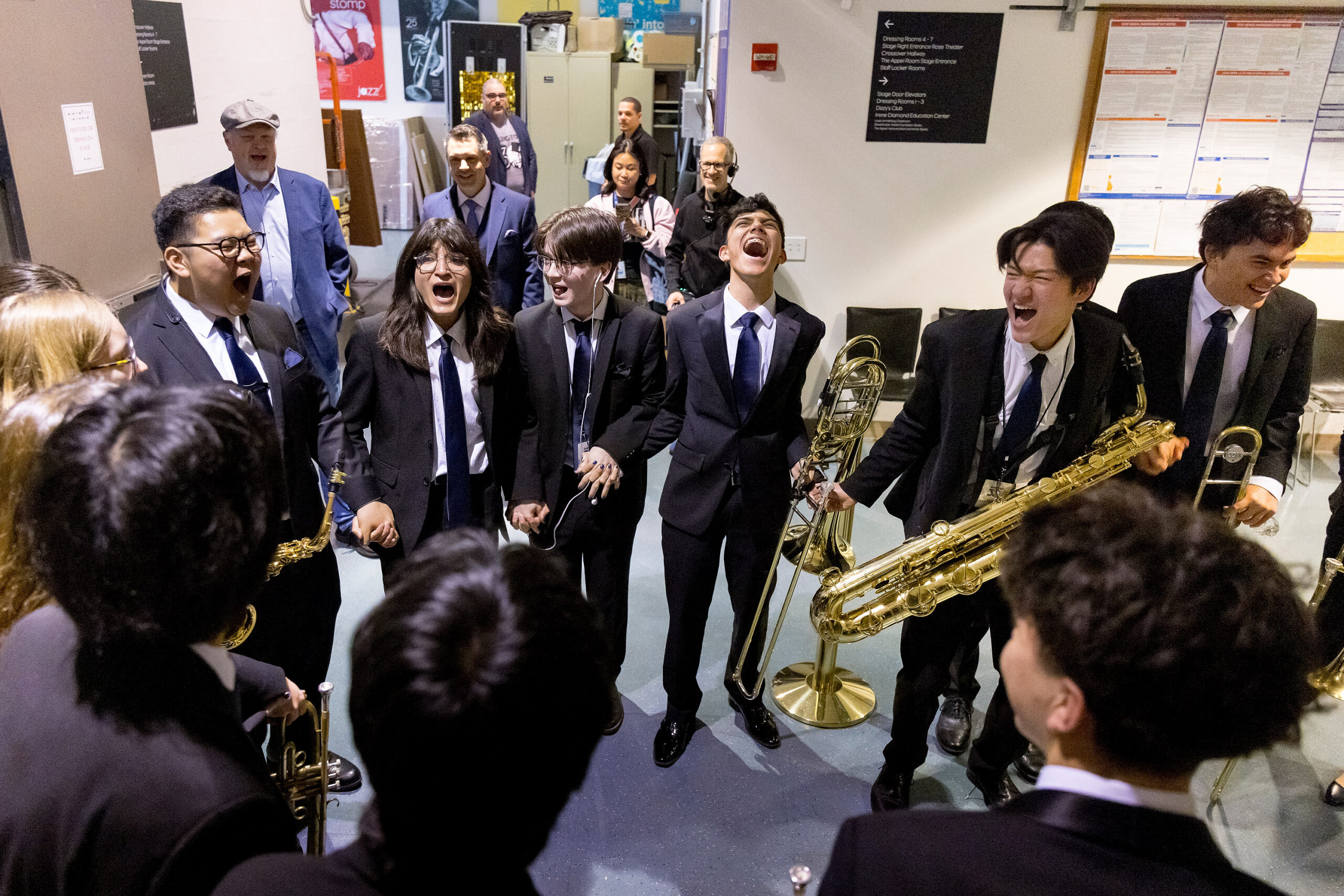By Sam Marks
In the early days of the COVID-19 pandemic, one of our most imaginative donors called me with a stumper: Had a donor-advised fund (DAF) account ever been used to refinance the mortgage of a nonprofit organization?
The donor was a longtime fan and supporter of the Tenement Museum, a vital organization that has been researching and telling the stories of immigrant New Yorkers for the past 25 years. He had read a story in The New York Times documenting the organization’s significant financial distress (“A Museum Devoted to Survivors Now Faces Its Own Fight to Live,” April 24, 2020). As a result of the pandemic, their visitors (and attendant revenue) dried up, but the museum carried significant fixed costs due to its mortgage, which cost the museum $585,000 per year.
Working with the donor and the Tenement Museum, we purchased the organization’s mortgage bond and changed the terms to 1% interest-only for five years. By lowering the interest rate and removing the burden of paying monthly principal payments, the transaction provided a financial lifeline to the museum.
“We are paying $2.5 million less out of pocket for debt service over these five years,” explains Annie Polland, the Executive Director of the Tenement Museum. “This has bought us time to figure out how we manage through this pandemic year, but it also freed us up to think of creative ways to operate.”
Who We Are
The founders of FJC could never have imagined this particular use of DAF accounts, but they always imagined we would be a home for creative donors. FJC was started in 1995 because of the limitations of the donor-advised funds (DAF) available at the time. As donors themselves, our founders were looking for more creative philanthropic solutions. They were business-savvy professionals who wanted their philanthropy to be just as sophisticated as their day jobs in law, business management, and finance.
Our founders believed that by more aggressively investing their philanthropic funds, they could grow their accounts and be able to provide even more support to their favorite charities. They knew there had to be better ways to invest than the low-yield, low-risk money market funds that were typical of the industry. They also understood that nonprofits were also businesses with unique needs, which could be met with bridge loans, revolving funds, and other vehicles. So FJC was created as the foundation that could do all the creative things its donors wanted, not only for their own charitable goals, but also for the nonprofit sector as a whole.
What We Do
Today, we are a responsive, customizable foundation of donor-advised funds that offers all the flexibility of a private foundation but with less hassle and cost. We continue to be on the leading edge of philanthropy as many of the innovations created by FJC are now standard in the industry.
We work with three distinct types of stakeholders:
- Donors: We work with high-net-worth individuals and their advisors, foundations, and others to come up with personalized solutions for their philanthropic needs, whether donor-advised funds, collective giving vehicles, fiduciary investment accounts, or something else.
- Emerging nonprofits: We fiscally sponsor nonprofits that do not have their own 501(c)(3) tax-exempt status, providing operational support to collect tax-deductible contributions and disburse grants and vendor payments.
- Established nonprofits with financing needs: We provide bridge loans to nonprofits to manage their particular cash flow challenges from city or state contracts or other timing issues.
This breadth of stakeholders allows FJC to be maximally responsive to donors. But we can also bring them the best ideas for what nonprofit organizations need in order to be effective. We’re nonprofit practitioners at heart, and empowered with all the expertise and technical skill of the financial sector.
The Donors We Serve Best
The landscape of DAF sponsors has evolved over the past 25-plus years, and there are now over 1,000 sponsors of donor-advised funds available, ranging from community foundations to nonprofit arms of large financial service companies. But just as the choices of philanthropic partners have proliferated, so has the range of possibilities for what philanthropic dollars can do. Our donors are finding it’s more urgent than ever to have a partner that can execute their most ambitious ideas.
Our most imaginative donors have kept abreast of the way the financial industry has evolved, such as the entrance of new currencies (like Bitcoin), new strategies (like ESG and values-aligned investing), and greater awareness of the impact of direct investing in nonprofits or social ventures.
The sky’s the limit, and the more imaginative the donor, the more we at FJC can do. Our donors look to us to act as a point of financial intermediation between the nonprofit sector and the investing world.
Donors at FJC can:
- Deploy their dollars as low-interest loans (examples: Supporting Afghan resettlement; 0%-interest line of credit to help a domestic violence organization)
- Contribute non-traditional assets (examples: Bitcoin; Real estate; Illiquid (or lightly traded) stock in advance of an IPO)
- Utilize impact investing (examples: Career impact bond, Refinancing the mortgage of the Tenement Museum)
Our best donors apply as much passion, thoughtfulness, and creativity to their philanthropy as they do to their work lives. We are increasingly seeing more interest from donors with larger accounts, or who want to transfer a private foundation’s assets to a boutique DAF, so they can take full advantage of our nimble, creative approaches.
We offer high-touch, concierge services that our clients know they can rely on. We are always available by phone or email to troubleshoot issues or execute complex ideas.
My Own Journey
I joined FJC as CEO in 2019, compelled by the notion that philanthropy could be creative, addressing the needs of both donors and nonprofits.
I began my career as a nonprofit practitioner, at nonprofits in the areas of youth and community development. I’ve also worked for a number of financial firms that intersect where money meets mission: a Wall Street bank (Deutsche Bank’s philanthropic arm) and a community development financial institution (LISC). My experience has shown me that the vital work of the nonprofit sector is built just like any other business. They depend on managing risk and steady cash flow to operate. They rely on a broad range of revenue sources, whether it’s public sector contracts, foundation grants, or individual contributions.
With creativity, commitment to mission, and business savvy, philanthropic dollars can have an impact far beyond just making contributions.
I was drawn to FJC because of the sophistication of our board and staff. We are able to customize solutions and implement creative ideas that come from donors, nonprofit partners, and clients. The industry has evolved, the sector has evolved, and FJC has evolved. Through it all, we have maintained our commitment to sophistication, customization, and our ability to bridge imaginative donors with the nonprofit practitioners who need their support.
The FJC Difference
If you’re ready to experience the FJC difference, we’d love to hear from you! Get started by reaching out to us at (212) 714-0001 or Marks@fjc.org.
About Sam
Sam Marks is the Chief Executive Officer of FJC – A Foundation of Philanthropic Funds, a boutique foundation of donor-advised funds dedicated to helping you make your philanthropy work harder through flexible, creative, and customizable strategies. Sam works with imaginative donors and nonprofits to amplify their work and passion, providing unparalleled personal service and the expertise to execute complex transactions, all so that their clients can make the world a better place. His desire is to align his clients’ goals and needs with support for important nonprofits that are making a difference in the world so their wealth can be deployed for positive change.
Sam has a bachelor’s degree from Brown University and a Master in Public Policy from the Harvard Kennedy School. Sam’s deep experience includes his role as executive director of the New York City office of Local Initiatives Support Corporation (LISC NYC), a community development financial institution that supports local champions to advance equitable development of historically underinvested neighborhoods. He has also acted as Vice President at the Deutsche Bank’s Community Development Finance Group, and director of housing development at WHEDCo in the South Bronx. Earlier in his career he founded Breakthrough New York, a youth development program. Sam is a third-generation New Yorker, married to a third-generation Brooklynite, with two sons. He has great affection for the culture and art forms New York is known for, from film to comic books to many genres of music. To learn more about Sam, connect with him on LinkedIn.




